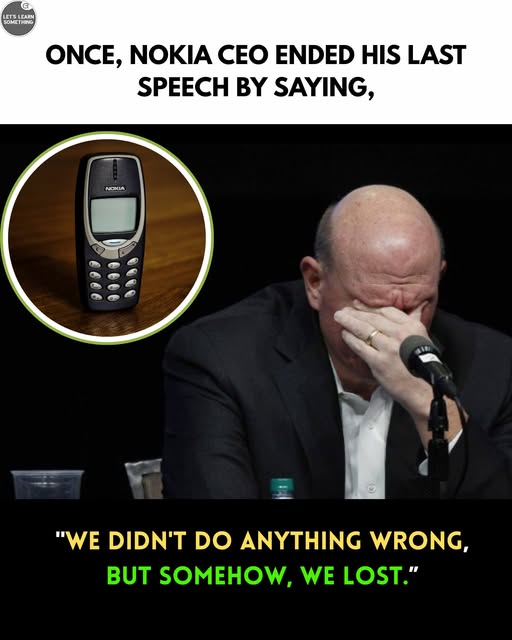Let Learn Something New

Nokia, once the undisputed leader in mobile phones, enjoyed global dominance with its durable devices and unmatched trust. But the rise of smartphones shifted consumer preferences. The transition from keypads to touchscreens was underestimated, and instead of adopting Android, Nokia aligned with Microsoft’s Windows Phone. Unfortunately, the platform lacked widespread appeal, leaving Nokia unable to compete with Apple’s iOS and Google’s Android.
Another major weakness was its slow pace of innovation. While Apple and Samsung delivered sleek designs, powerful features, and thriving app ecosystems, Nokia continued focusing on durability and basic phone functions. This created a gap between evolving consumer demands and Nokia’s outdated offerings.
Internal challenges worsened the problem. Bureaucratic decision-making slowed Nokia’s response to market trends, and by the time it tried to recover, competitors had already pulled far ahead.
Nokia’s decline now serves as a timeless business lesson: success is never permanent. To survive, companies must embrace change, prioritize innovation, and anticipate customer needs. Those who fail to evolve risk losing even the strongest empires.